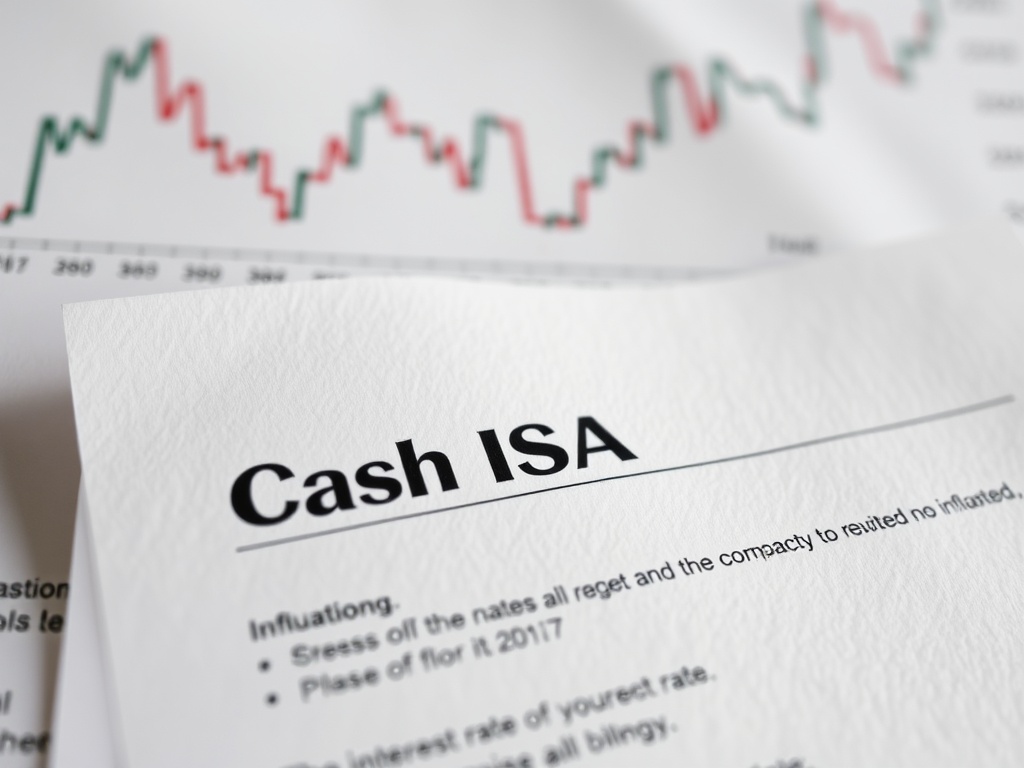Cash ISAs and Real Returns: A Deteriorating Situation for Savers
Many savers utilizing cash ISAs are finding themselves at a financial disadvantage, as the rate of inflation currently outpaces the interest earned on their accounts, recent analysis reveals. According to figures published on Wednesday, inflation surged to 3 percent for the year ending January. However, data from the Bank of England indicates that the average cash ISA deposit was yielding a mere 1.77 percent during the same period.
This marks the third consecutive month in which average ISA returns have fallen below the inflation rate, leading to a gradual erosion of savers’ cash in real terms. The disparity was particularly pronounced in late 2022, when cash ISAs were offering less than 2 percent interest while inflation exceeded 10 percent, reaching a peak of 11.1 percent in October of that year.
Potential Changes in Cash ISA Policy
As this trend continues, the Treasury is exploring the possibility of either eliminating or restricting cash ISAs in an effort to nudge more Britons towards investing in higher-yield options, such as the stock market. Financial experts have pointed out that shoppers can find significantly better returns by comparing rates, with some cash ISAs still offering interest rates above 5 percent despite a recent decrease in the base rate. Moreover, individuals might achieve even more favorable returns by considering stocks and shares ISAs, although these investments come with the inherent risk of losing capital.
Wealth management firm Quilter has issued warnings to its clients that as inflation is projected to rise later this year, the real-term losses experienced by cash savers could worsen. Holly Tomlinson, a financial planner at Quilter, commented, “After an unusually favorable phase where cash ISAs provided above-inflation returns, we are now witnessing a return to a scenario where individuals are losing money in real terms by keeping their funds in cash.”
She added, “While this data indicates that cash ISAs might not be the optimal choice for maximizing returns, they still serve a purpose. If your savings goal is short-term, the risks associated with investing may not be appropriate for your situation.”
ISA Contribution Limits and Tax Benefits
At present, individuals can contribute up to £20,000 annually into an ISA, with all interest earned exempt from taxation. Typically, savers are subject to tax at their marginal rate after surpassing a certain threshold—£1,000 annually for basic rate taxpayers, £500 for higher rate taxpayers, and £0 for those in the additional rate bracket.
The two primary types of ISAs are cash ISAs and stocks and shares ISAs, which invest in the stock market or similar vehicles. While stocks and shares ISAs generally yield higher returns over time, they also entail greater volatility and risk.
Despite ongoing discussions, the Government has consistently refrained from ruling out potential restrictions on cash ISAs. Ministers are expected to engage in talks with investment firms in the coming months, aimed at finding ways to encourage citizens to utilize their savings in manners that promote economic growth and yield higher returns for savers. No definitive decisions have been made, and any announcements are unlikely to be released before the next Budget in the autumn, with any policy changes likely to take effect from April 2026.
A Treasury spokesperson stated, “We aim to assist individuals in saving for their future goals and to foster greater financial resilience throughout the nation. We continuously review all aspects of savings policy.”
However, building societies and banks have voiced concerns regarding potential changes to cash ISAs. Chris Irwin, director of savings at Yorkshire Building Society, warned that removing cash ISAs as an option could “negatively impact the financial well-being of many, while also increasing their tax liabilities.”
Best Cash ISA Rates

- Easy-access: Trading 212 (5.03 percent)
- One-year fix: OakNorth Bank (4.46 percent)
- Two-year fix: Secure Trust Bank (4.41 percent)




